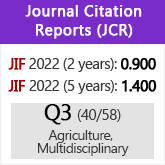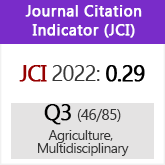The degree of plant resilience to infection correlates with virus virulence and host-range
Abstract
Antagonistic interactions between plant viruses and their host lead to coevolution of virus virulence and host defenses. Plant virus adaptation to the defenses of a specific host may occur in detriment of their ability to exploit alternative hosts, driving to specialization. Using comparative analyses of the symptoms induced by members of several families of RNA plant viruses and of a quantitative estimate of the susceptibility to viral infection of plant families, it is shown that viral families that infect hosts from different families (generalists) exploited them in a benign way. Furthermore, plants infected by generalist viruses showed, on average, a large susceptibility to infection. By contrast, viral families parasitizing a small number of hosts from very few families (specialists) exploited them more virulently. Plants hosting very virulent and specialized viruses are also less susceptible to viral infection. Finally, it has been shown that specialist viruses are, on average, more virulent than generalists ones.Downloads
© CSIC. Manuscripts published in both the printed and online versions of this Journal are the property of Consejo Superior de Investigaciones Científicas, and quoting this source is a requirement for any partial or full reproduction.
All contents of this electronic edition, except where otherwise noted, are distributed under a “Creative Commons Attribution 4.0 International” (CC BY 4.0) License. You may read here the basic information and the legal text of the license. The indication of the CC BY 4.0 License must be expressly stated in this way when necessary.
Self-archiving in repositories, personal webpages or similar, of any version other than the published by the Editor, is not allowed.















